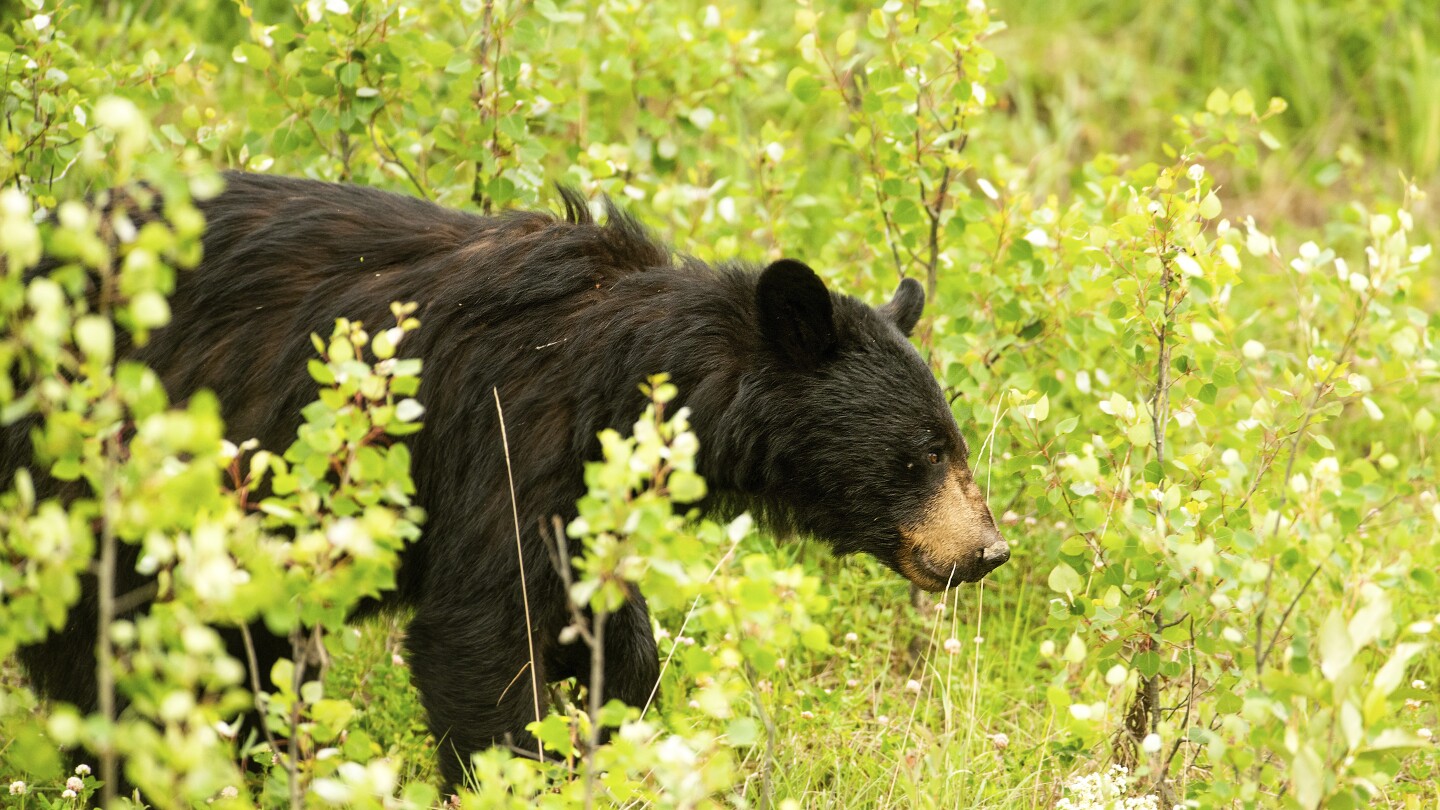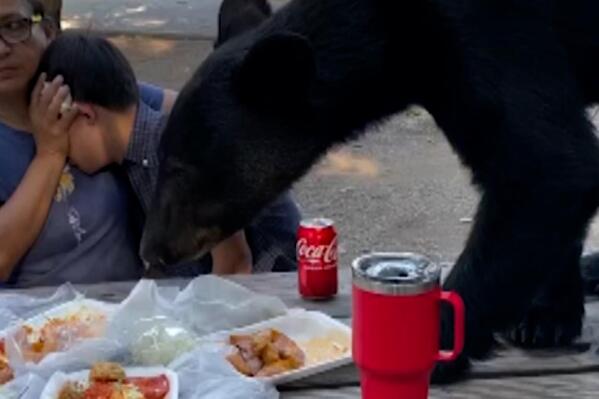SKOPJE, North Macedonia (AP) — A rising bear population is posing a threat to people in an area in western North Macedonia, where bear break-ins are increasingly common.
A dozen cases this year of bears attempting to break into houses in search of food have been reported by fearful villagers living in the mountainous area of the Mavrovo National Park, the country’s largest. Some villagers have demanded that authorities take urgent measures for their protection.
The head of the national Crises Management Center, Stojance Angelov, told The Associated Press on Saturday that in the last five years the population of brown bears in the national park has doubled.
“There are between 160 and 180 brown bears in Mavrovo National Park,” Angelov said. “Experts indicate that there should be up to 70 bears in this region, and their number now has doubled.”
Angelov said that according to the residents of the village of Zirovnica, there are about 30 bears that feed in the area and often enter the village. They pose a danger to the lives and health of the villagers, especially because there are many children, he said.
Brown bears have been protected in North Macedonia since 1996.
Angelov explained that bears have been reproducing at an increased rate and, because of global warming, they no longer hibernate.
“Bears are now active during winter, and this alone makes them search for food to survive year round. It is becoming more and more common for bears to have three cubs each, which used to be a rarity,” he said.
Angelov said that people from the village of Zirovnica have reported a dozen cases of bears trying to enter their houses. They have also reported many attacks on beehives and the killing of livestock.
“This year there is not enough food and fruit and bears are entering the village more frequently,” he said. “All the villagers are carrying firecrackers to scare and drive them away. There have been no attacks on people, for the time being, but it is only a matter of time before it happens.
Zirovnica villager Sanie Kukoli says bear attacks on livestock have increased recently. “Several calves have been eaten; four to five cows have been killed and eaten by bears. The situation is alarming,” he said.
His neighbor, beekeeper Ahmet Ahmeti, said that bears started entering his property in 2018, but this year especially their arrivals have increased.
“A bear entered my house, destroyed the kitchen. It is already normal to come face to face with a bear here in Zirovnica,” Ahmeti said. “We carry firecrackers in our pockets when we go out at night and that’s how we defend ourselves. We villagers have noticed 10 bears entering the village, but around the village I think there live about 40 bears.”
Another beekeeper, Xhevat Kukoli, said he used to have 80 bee swarms but this year he has none.
“A bear took the beehive, crushed it and ate the content,” he said. “I have dogs, they didn’t drive her away and only firecrackers help — the stronger ones. The children cannot go out at night because of bears, we are afraid to let them out in the yard and certainly not farther away.”
Brandishing a pot and its lid, Azire Neziri, an elderly woman, explained how she defended herself from a bear trying to crash the door and enter her house.
“I was doing the dishes (and) the bear tried to enter through the door. … The glass had been shattered. I shook the pot and lid and went up to the balcony. After she saw me, the bear left,” she said.
“I don’t sleep at night,” Azire said. “I live alone. I went to the doctor and he gave me medication for the stress.”
Angelov, the crisis center chief, said residents are demanding that authorities declare a state of emergency in the municipality and remove the danger presented by the bears. “We have not had such a situation until now,” he said.
Angelov said he has called an urgent meeting of an assessment group comprised of members of the crisis management center and outside officials, for Monday to evaluate whether the conditions for declaring a state of emergency have been met.
He explained that the Ministry of Agriculture and Ecology can allow the shooting of the brown bears even if they are protected in cases where they become too aggressive.
“According to the villagers, there are several bears that are quite aggressive. Shooting is the most undesirable and ignoble thing and we want to avoid (it), but the lives and health of citizens are always our first priority,” he said.
Angelov said Romania is facing a similar situation and the shooting of bears has become a political issue. In the past five years, 14 people have been killed and 154 injured in encounters with bears in Romania, he said.
“We should not wait for something like this to happen in our country, for someone to die or be injured,” he said. “We will also include the animal protection activists in the decisions. We love bears but we love people more.”


